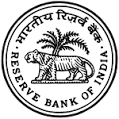The Reserve Bank of India’s higher-than-expected cut in interest rate by 50 basis points (bps) is set to bring down the cost of loans, stimulate domestic consumption, support the investment cycle, boost credit growth and lower earnings from fixed deposits, bankers said.
The borrower-centric monetary policy comes along with a phase-wise cut in the cash reserve ratio (CRR) by 100 bps to 3%, which will add Rs 2.5 lakh crore to the banking system and further enhance liquidity. The combination of a reduced repo rate to 5.5% and a lower CRR requirement is expected to spur consumer spending and accelerate bank loan growth. Home loan borrowers, small businesses and others stand to benefit as borrowing costs turn cheaper.
State Bank of India chairman CS Setty said the policy has “broadly addressed any concerns on slowdown in growth on account of global uncertainties and fully capitalised on the softening domestic inflation to deliver a frontloaded rate cut, staggered durable liquidity injection yet conserving the space for future action”.
Punjab National Bank managing director and CEO Ashok Chandra is of the view that the monetary policy will support credit offtake, boost investor sentiment and further strengthen India’s growth momentum. “At PNB, we see this as an opportunity to step up credit deployment, especially towards productive sectors and retail demand,” he said.
Soon after the RBI announced the steep cut in repo rate, Punjab National Bank reduced repo-linked lending rate (RLLR) by 50 basis points to 8.35%. Other banks are expected to follow suit.
Kotak Mahindra Bank deputy managing director Shanti Ekambaram believes growth will get a significant boost as the RBI surprised markets with a bold 50 bps cut in the repo rate and a 100-bps reduction in the CRR. “With inflation remaining benign and domestic macroeconomic indicators stable, the central bank seized the opportunity to stimulate the economy. These decisive moves are expected to invigorate both urban and rural consumption, while also rekindling investor confidence and encouraging capacity expansion," she said.






